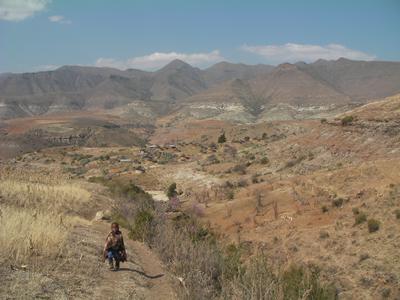I travelled to Lesotho to carry out research into barriers to the uptake of Conservation Agriculture (CA) there.

Landlocked within South Africa, Lesotho's highly mountainous topography gives rainfall an elevated erosive capacity. Accentuated by traditional agricultural methods, involving deep tillage and removal of protective crop debris, erosion makes Lesotho's soil one of the country's largest exports as it is literally washed away. Soil becomes thin and nutrient poor, and crop yields decrease on a yearly basis.
By reducing tillage, encouraging the use of cover crops and crop rotation, CA is accessible to farmers of all abilities and works to reduce or reverse the impacts of erosion. As with all new agricultural techniques, there are socio-economic and cultural barriers to its initial uptake that need to be overcome.
I joined two NGOs- Growing Nations and Rehobothe Church, staying with host families in Qacha's Nek and Butha-Buthe, Lesotho. I collected data through semi-structured interviews and transect walks, meeting with 70 smallholder farmers and delving into the problems they face with the farming methods available to them; openly asking them for their advice on how these problems should be addressed. As well as writing this up for my dissertation, I hope to add this data into a feedback system helping to tailor the local NGOs' training programs accordingly, with the aim of increasing future uptake levels of this potentially life changing agricultural technique.